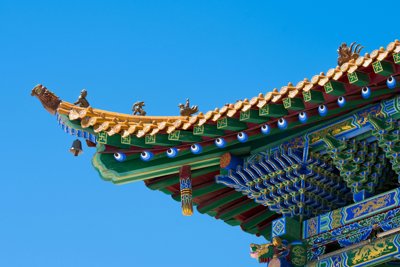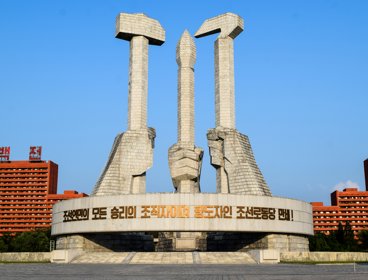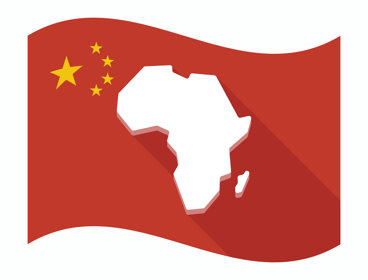North Korea is a nation of global political intrigue. It is a closed communist state (although the country described its political system as following Junche – or self reliance) with heavy press censorship and one of the worse human rights records internationally. It has carried out nuclear tests, is subject to international trade sanctions and has been labelled both a ‘rogue state’ and (alongside Iran and Iraq) part of the ‘Axis of Evil’ by the former US President George W Bush.
Seung-Ook Lee, a PhD at the geography department of Ohio State University, has researched the relationship between China and North Korea. He is interested in the future of the Korean peninsula (including both North and South Korea) and the impact that this will have on the whole of Northeast Asia.
Seung-Ook wants to overcome the stereotypes of North Korea, to better understand the country. ‘There are so many untruths about North Korea in the media, as well as in academia,’ he explains. ‘I do not claim to be pro-North Korean. I just try to be fair to North Korea.’
Seung-Ook has visited North Korea twice, in 2009 and 2011, and his findings have been published in the Geographical Journal.
Can you tell us about your approach to the China-North Korea relationship?
I believe that the relationship between China and North Korea is actually affected by economic interests as much as political ones. State diplomacy is still an important factor in the close relationship between China and North Korea. But trade and economic development are becoming increasingly important drivers.
I do not like the stereotypes of North Korea. It is too easy to dismiss the country as ‘crazy’ or ‘evil’. People usually focus on the geopolitics of North Korea, particularly its military provocations. But economic relationships (e.g. trade and investment) complicate the simplistic geopolitical storylines that we are familiar with from the media.
Why is economic cooperation with China so important for North Korea?
North Korea has very few countries to trade with, so they rely on a number of imports from China. For example, if China did not export oil to North Korea, they would struggle to meet their national energy demands. Interestingly, it is known that China actually sells oil to North Korea at a rate above global market prices. So China benefits from the relationship too. This is a relationship of trade, not just aid.
North Korea does not depend on China for everything. Industrial development and diversification is important for a self-sufficient North Korea economy, so they have tried to develop their own national industries though this attempt has not been so successful until now. In this respect, trade with a range of countries is also important for North Korea, in spite of international trade sanctions. For example, North Korean trade with Russia is already notable.
Does North Korea cooperate with South Korea, its other bordering country?
There is an Special Economic Zone (SEZ) at Kaesong on the border between North Korea and South Korea. The SEZ was jointly operated by the two nations and produces a range of relatively low-value consumer products. Small and medium-sized South Korean companies invested in the SEZ and North Korea workers were employed.
The SEZ was the main site of economic cooperation between North and South Korea. However, trade between the Koreas has sharply declined since 2008, when South Korea elected a Conservative government, and during heightened tensions between North and South in 2013 the SEZ was suspended.
How do the North and South Korean economies compare?
Until the early 1970s, the North Korean economy was believed to have a greater economic output than the South Korean economy But South Korea’s rapid growth over the last few decades has created a huge development gap between the two nations.
In theory, North Korea has tried to lessen this gap but it is dependent on the North Korea’s relationship with China and the US. The US plays an important role in restricting North Korean trade.They can also inhibit North Korea’s access to assistance from and cooperation with organisations such as the United Nations, World Bank, International Monetary Fund and World Trade Organisation.
Could international pressure cause China to cut off relations with North Korea?
A number of commentators hope that China will eventually cut off its alliance with North Korea. The international community is generally in agreement that something needs to be done about North Korea and China provides a major obstacle to that at the moment.
In my view, China-North Korea economic cooperation is a route to geopolitical stability in the region of Northeast Asia. China needs its neighbours to be economically strong and, therefore, politically stable. So China is using geoeconomic strategies to meet geopolitical needs. I do not see that ending in the near future.
How do you think China-North Korean relations will change in the future?
In the future, there will be a global power struggle between China and the US. China is a rising superpower and the US is experiencing declining power. Some people certainly argue that we are in a period of transition, whereby global power is shifting. These global shifts will affect the Korean peninsula and regional relations in Northeast Asia too.
As well as conflicting interests between China and the US, there is also cooperation (especially in terms of trade). But the conflict is what interests me. I think the tension between China and the US has grown over the last 10 years, and China’s alliance with North Korea has been an interesting part of that. It will be very interesting to see whether China continues to support North Korea at the risk of souring their relationship with the US.
Learn more
Ask the Expert: Alasdair Pinkerton (Superpower geographies)
This interview is of particular relevance to Edexcel A-Level unit 3, which covers Superpower Geographies. It addresses importance questions surround who superpowers are, what influence they have and what implications the rise of new superpowers is having.
An introduction to superpower geographies
These resources will provide students with an introduction to Superpower Geographies, through an examination of who the superpowers are and how their power develops over time. Includes teachers’ notes and a PowerPoint presentation to download.
Seung-Ook Lee was interviewed in July 2013





